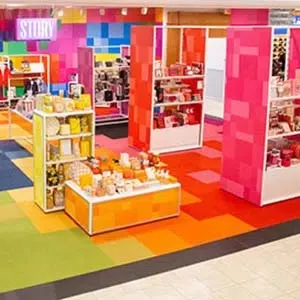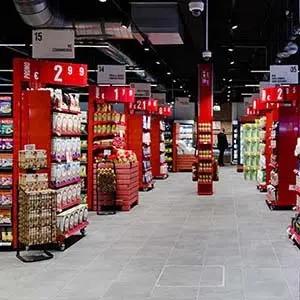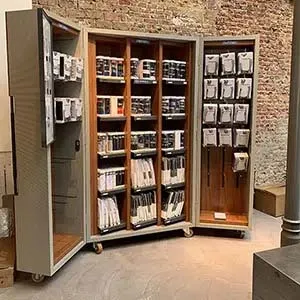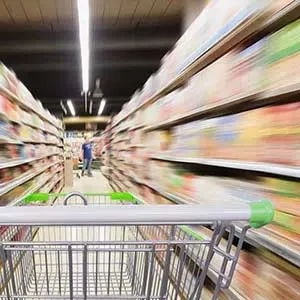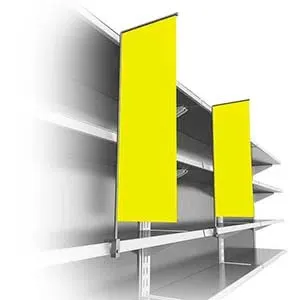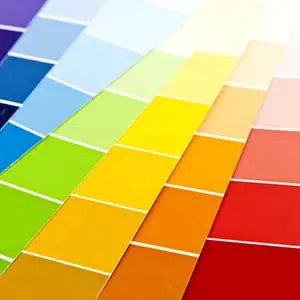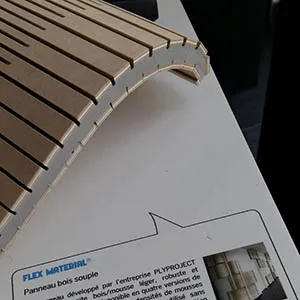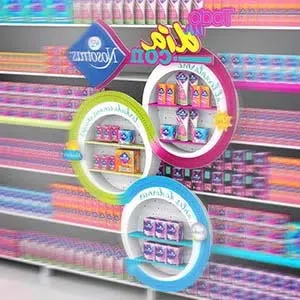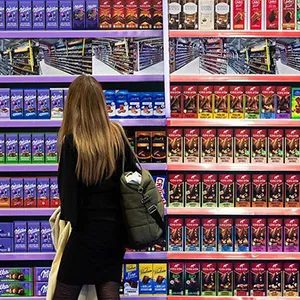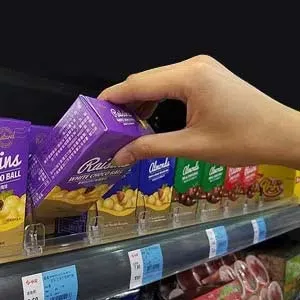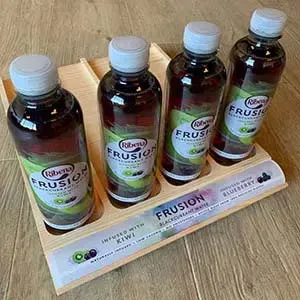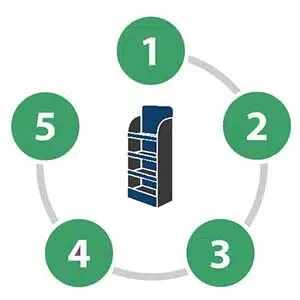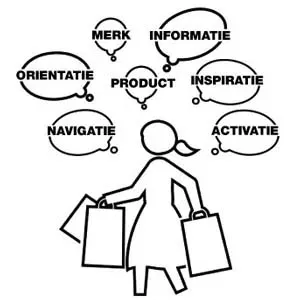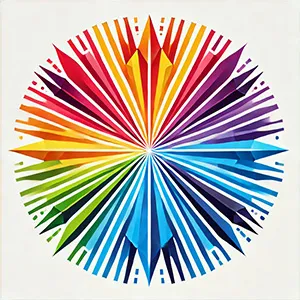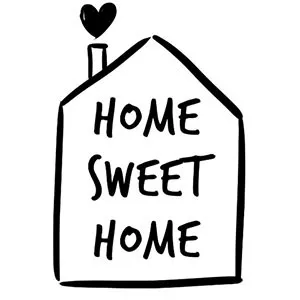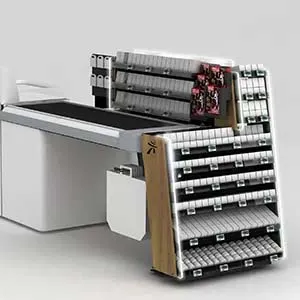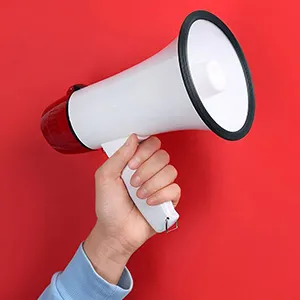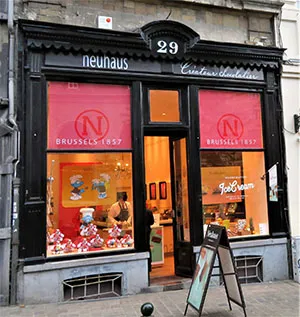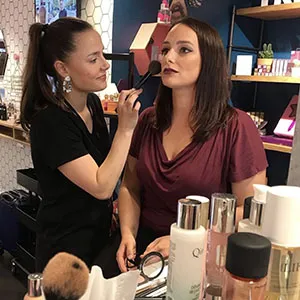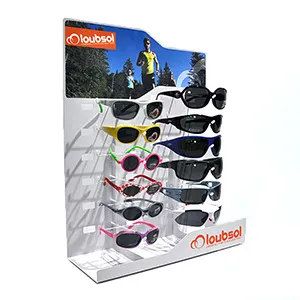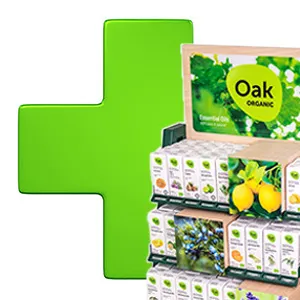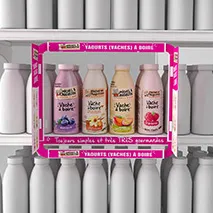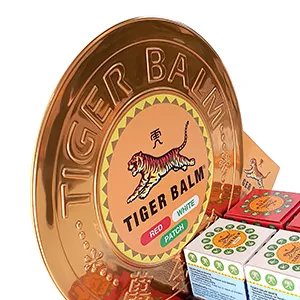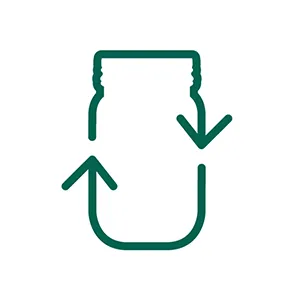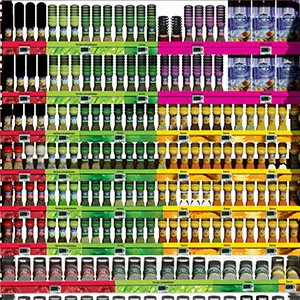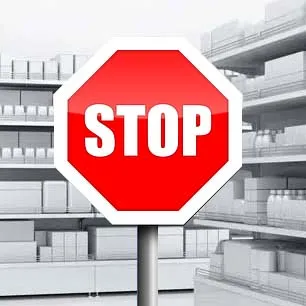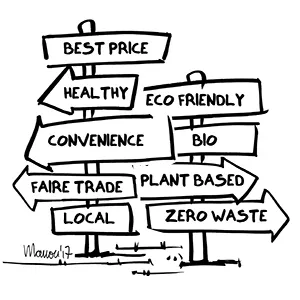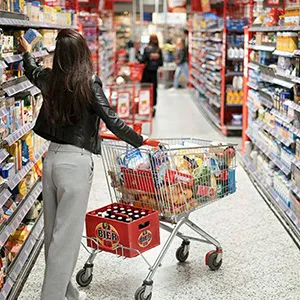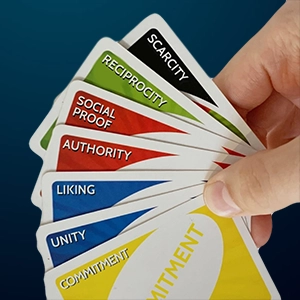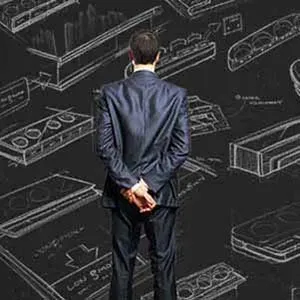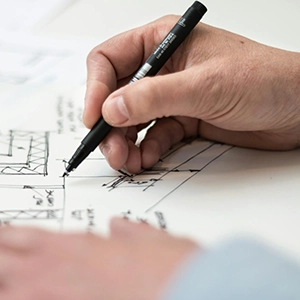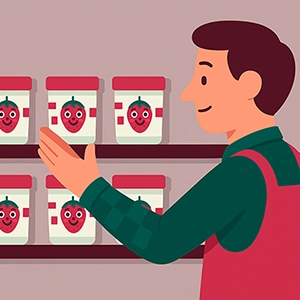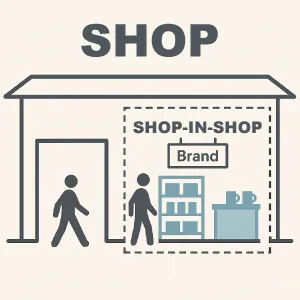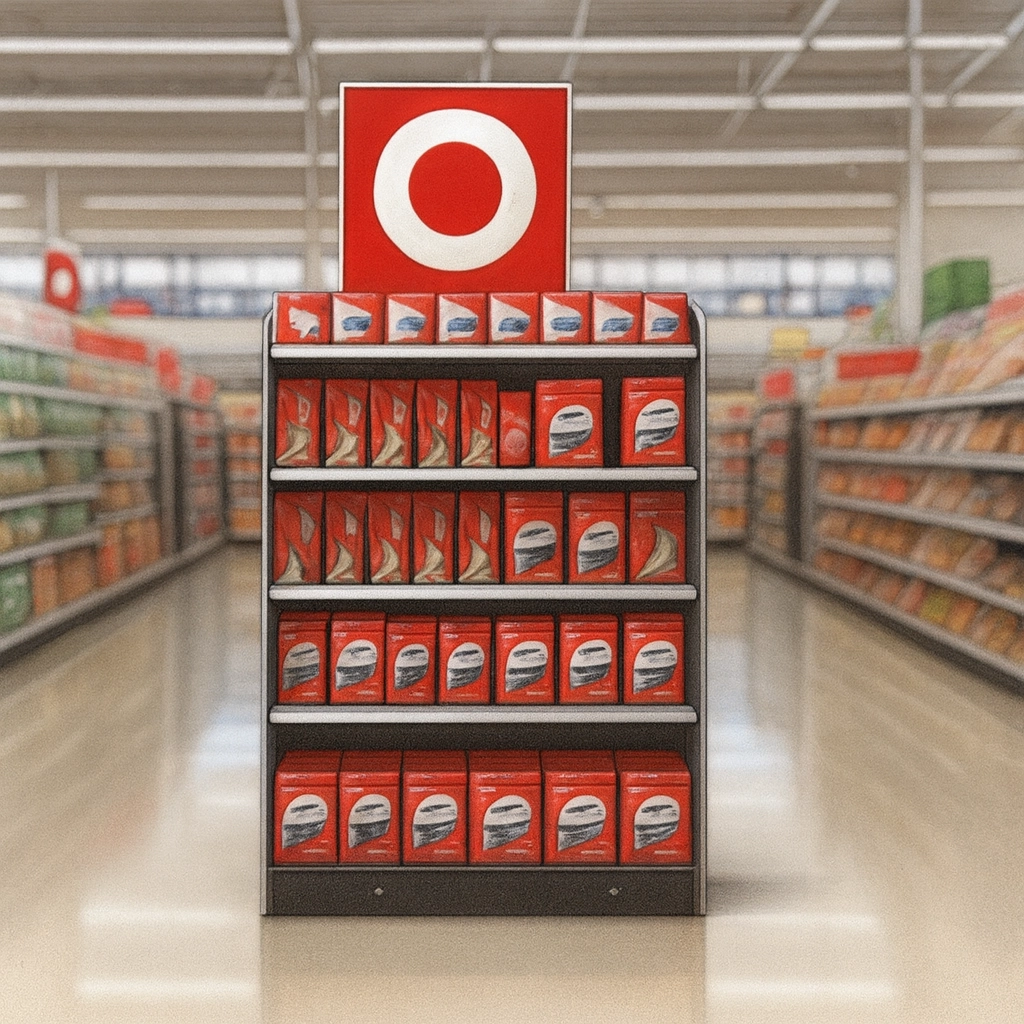De l’espace linéaire à l’espace de marque :
la valorisation de linéaire
1000 mots
#activationdemarque #innovationretail #experienceenmagasin
Octobre 2025
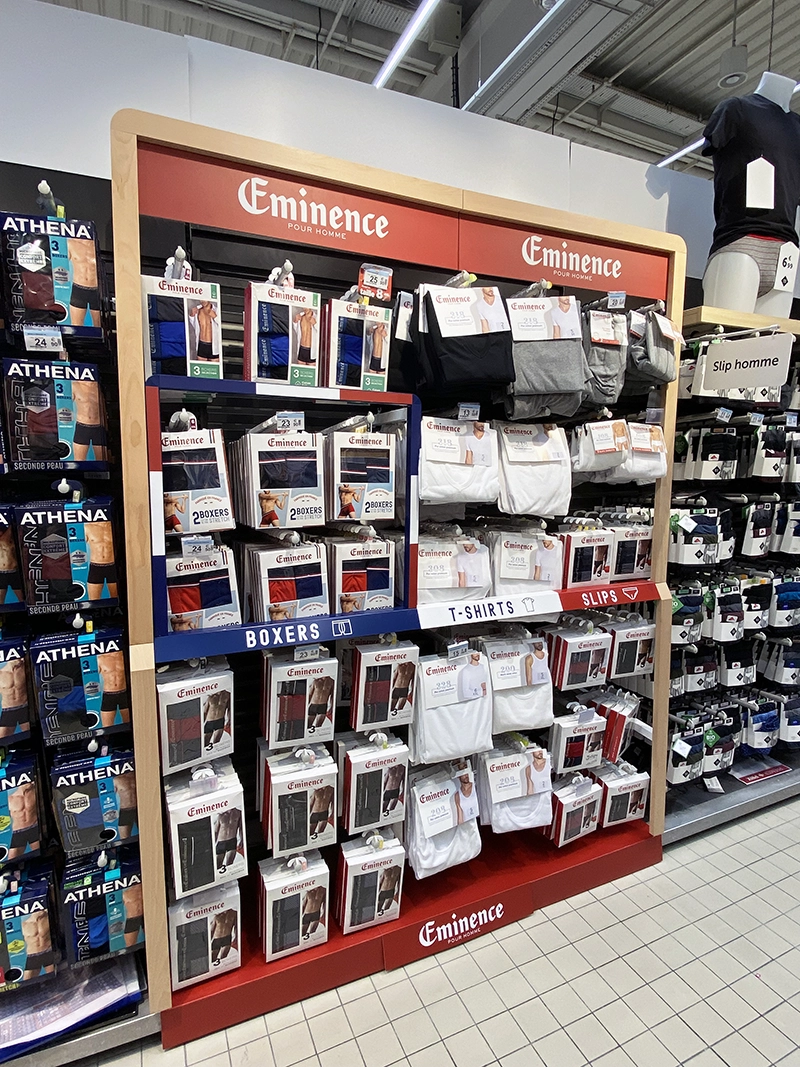
Dans les supermarchés, hypermarchés ou magasins spécialisés, vous avez peut-être remarqué des sections plus larges qui attirent immédiatement l’attention. Tous les produits présentés appartiennent à une même marque, et le design, les couleurs ainsi que la signalétique sont cohérents.
C’est ce que les professionnels du marketing in-store, du design retail et de la PLV appellent un bloc marque
Vous entendrez également d’autres termes pour des concepts similaires — comme présentoir linéaire ou cadre linéaire — qui désignent toutes les solutions permettant aux marques de renforcer leur présence directement sur les étagères où leurs produits sont vendus, à leur implantation primaire.
Alors qu’un bloc marque correspond à une zone dédiée sur le linéaire réservée à l’assortiment d’une grande marque, les valorisations de linéaire vont encore plus loin en matière de mise en scène. Une valorisation de linéaire occupe généralement une partie importante d’un meuble de rayonnage, allant d’un module à plusieurs modules complets, et se distingue visuellement. L’agencement, les couleurs, les visuels et les messages sont spécifiquement conçus pour refléter l’identité de la marque.
En résumé, c’est une mini-boutique intégrée au rayon — un point d’ancrage visuel fort qui crée un lien avec les acheteurs et stimule l’acte d’achat.
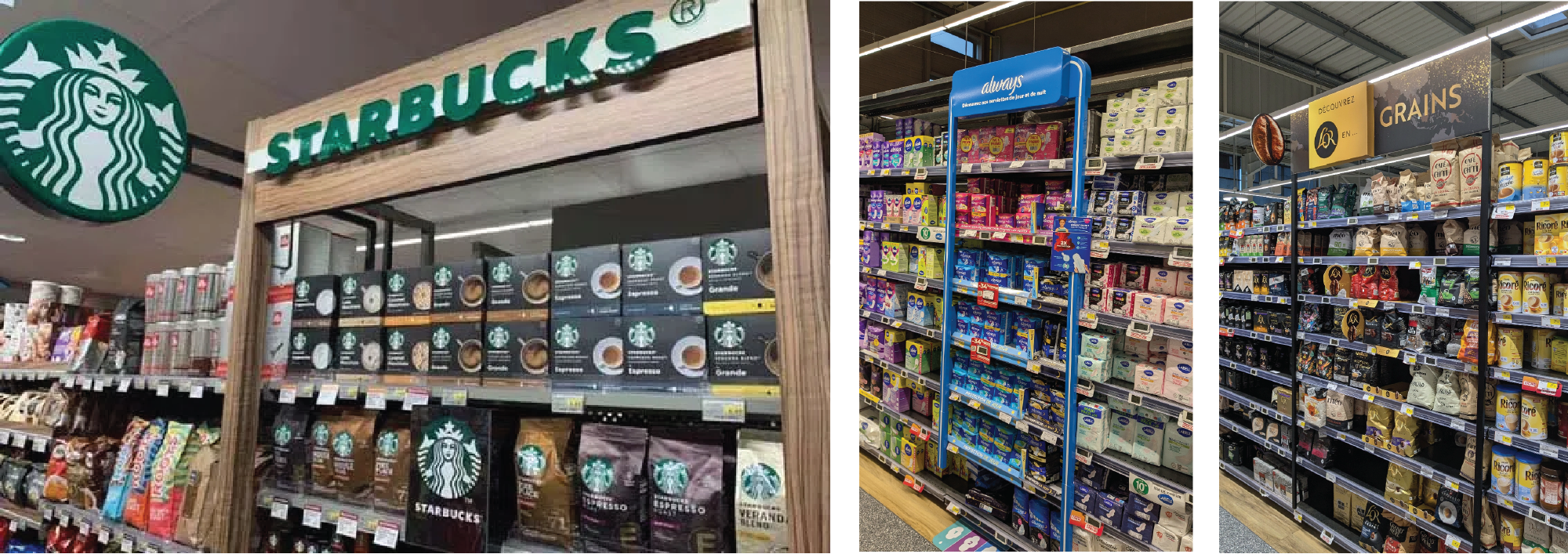
Cet article explique ce que sont les branded bays, pourquoi les marques y investissent et quelles sont les solutions de design possibles pour créer des branded bays efficaces et durables.
Pilotes conçoit du mobilier commercial, des displays et des solutions de merchandising. Nous proposons des supports de PLV 100 % sur mesure, adaptés aux projets in-store des marques et des enseignes. Parce que nous nous soucions du climat et de l’environnement, nous analysons le cycle de vie de chaque projet afin d’en éviter, réduire et compenser l’impact 🌍🌿
Vous avez un projet en tête ? Contactez-nous et donnons vie à votre vision ensemble !
Pourquoi les marques investissent-elles dans les branded bays ?
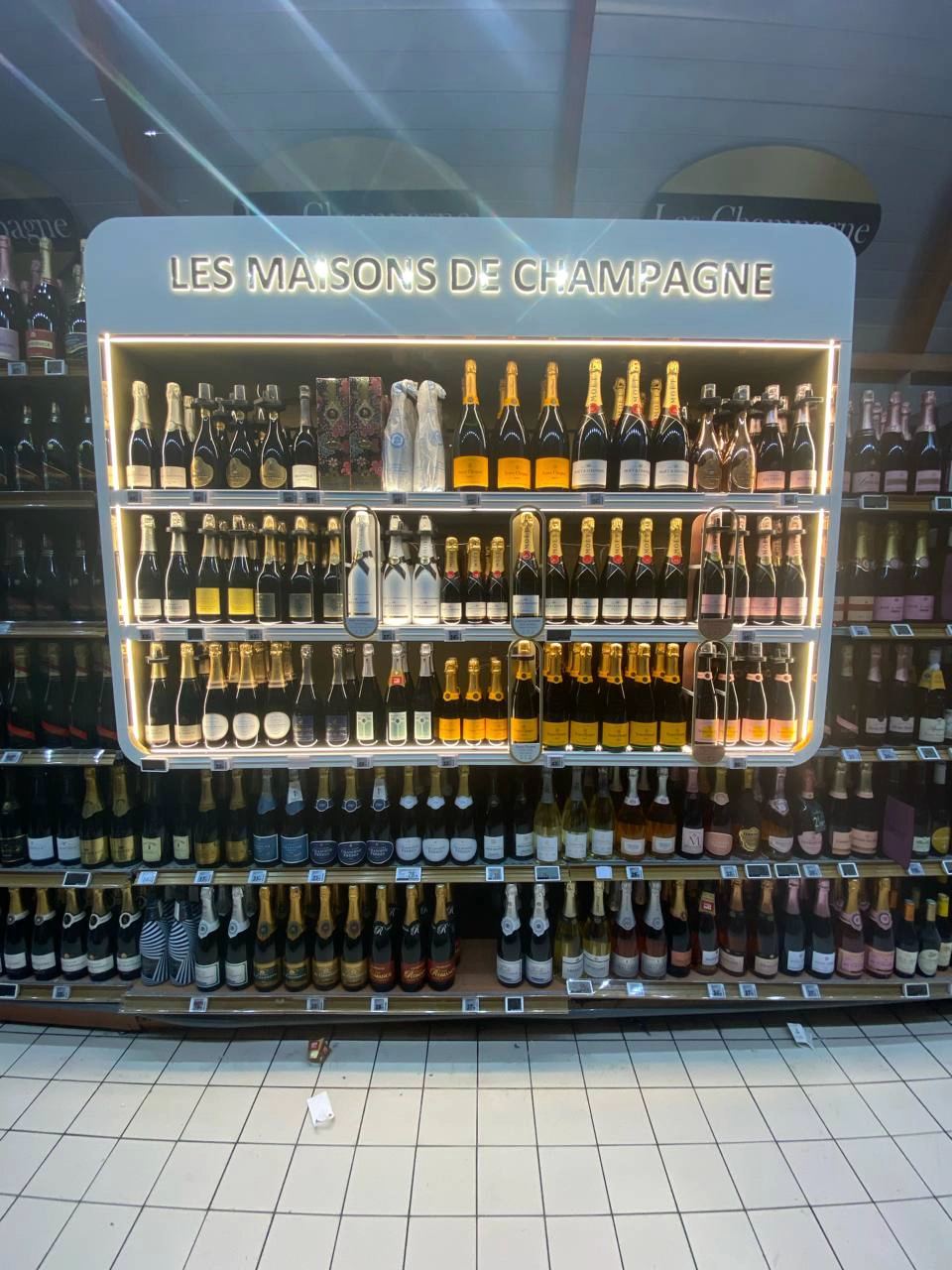
Les rayons sont saturés et extrêmement concurrentiels. Lors d’un parcours d’achat moyen, les consommateurs sont exposés à des milliers de produits, tous plus colorés les uns que les autres. Être simplement esthétique ne suffit plus — la bataille pour l’attention est féroce. Un branded bay offre à une marque un avantage décisif : le contrôle de l’expérience en magasin à son implantation primaire, tout en permettant éventuellement des extensions de gamme.
En créant un univers cohérent, la marque s’assure que son storytelling se prolonge jusqu’au point de vente. Après avoir investi dans des campagnes et des médias hors magasin, c’est le moment de vérité — celui où l’objectif est de conclure la vente. Le design renforce la reconnaissance, instaure la confiance et guide subtilement le consommateur vers l’acte d’achat.
Il existe également une dimension commerciale à prendre en compte. L’espace linéaire a un coût, et les négociations entre industriels et distributeurs incluent souvent la visibilité en magasin. Un branded bay permet de sécuriser ces partenariats et d’assurer une exécution homogène au niveau des points de vente, rendant l’investissement pertinent pour les deux parties.

Pour les distributeurs, les bénéfices sont tout aussi évidents. Les branded bays impliquent souvent un co-investissement de la marque, permettant au magasin d’améliorer son apparence à moindre coût. Ils aident également à structurer les rayons, rendant le parcours d’achat plus fluide et visuellement plus attractif.
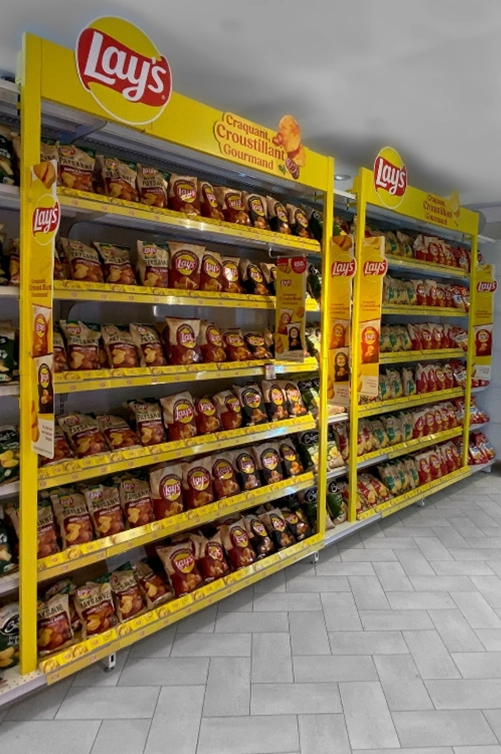
Les branded bays étant généralement réservés aux marques leaders ou à forte performance, ils servent de points d’ancrage facilitant l’orientation des shoppers dans les catégories. Une signalétique claire et des codes de marque distincts offrent des repères précieux — un atout particulièrement apprécié dans des rayons denses et complexes.
Concevoir un branded bay efficace sur le long terme
Les dispositifs de branded bay prennent de nombreuses formes et offrent des possibilités infinies. Certaines marques travaillent avec des éléments fixés sur les étagères existantes — cadres, façades, frontons, ailettes, bandeaux, cartes et signalétique — afin d’ajouter couleur, logos, visuels et messages. Pour créer une présence plus forte et reconnaissable, le design, les formes et le choix des matériaux s’alignent sur l’identité visuelle et les messages clés de la marque.
Article associé > Le rayonnage retail : techniques et solutionsTous les matériaux doivent également être conçus pour résister à l’usure du milieu retail. Il existe de nombreuses solutions de fixation permettant d’adapter les dispositifs à pratiquement tous les types de rayonnages — un défi à ne pas sous-estimer.
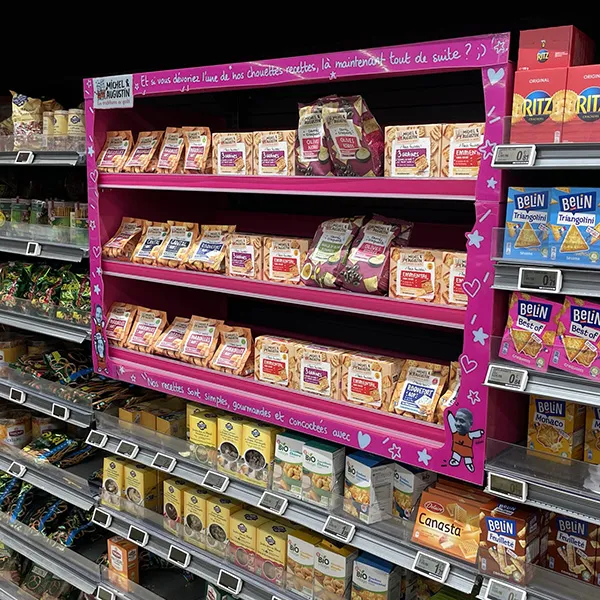
Pour dépasser ces contraintes, certaines marques vont au-delà du rayonnage standard. Elles peuvent retirer un module du linéaire — voire certaines étagères — pour le remplacer par un display indépendant ou un shelf-on-shelf unit. Cette approche ouvre un champ créatif quasi illimité en matière de design, de couleurs, d’éclairage, de visuels et d’implantation produits, offrant une expérience d’achat plus engageante et mémorable. Ces solutions sont généralement conçues pour une installation de long terme.
L’équilibre reste toutefois essentiel : le dispositif doit se démarquer sans perturber la circulation globale du magasin. Une collaboration étroite avec les enseignes garantit que le branded bay s’intègre harmonieusement aux catégories adjacentes et enrichit le parcours client plutôt que de le surcharger.
Créer un branded bay performant nécessite un savant mélange de créativité, d’expertise technique et de connaissance du retail. Pour en maximiser l’efficacité, il est préférable de confier la conception et la réalisation à un spécialiste de la PLV — un partenaire qui maîtrise le rayonnage, les matériaux, le comportement shopper et le branding. Le résultat : un dispositif qui attire l’attention, génère de la conversion et construit une valeur de marque durable en magasin.
Envie de transformer vos linéaires en véritables espaces de marque ? Contactez-nous dès aujourd’hui — créons ensemble le branded bay idéal pour votre marque.
